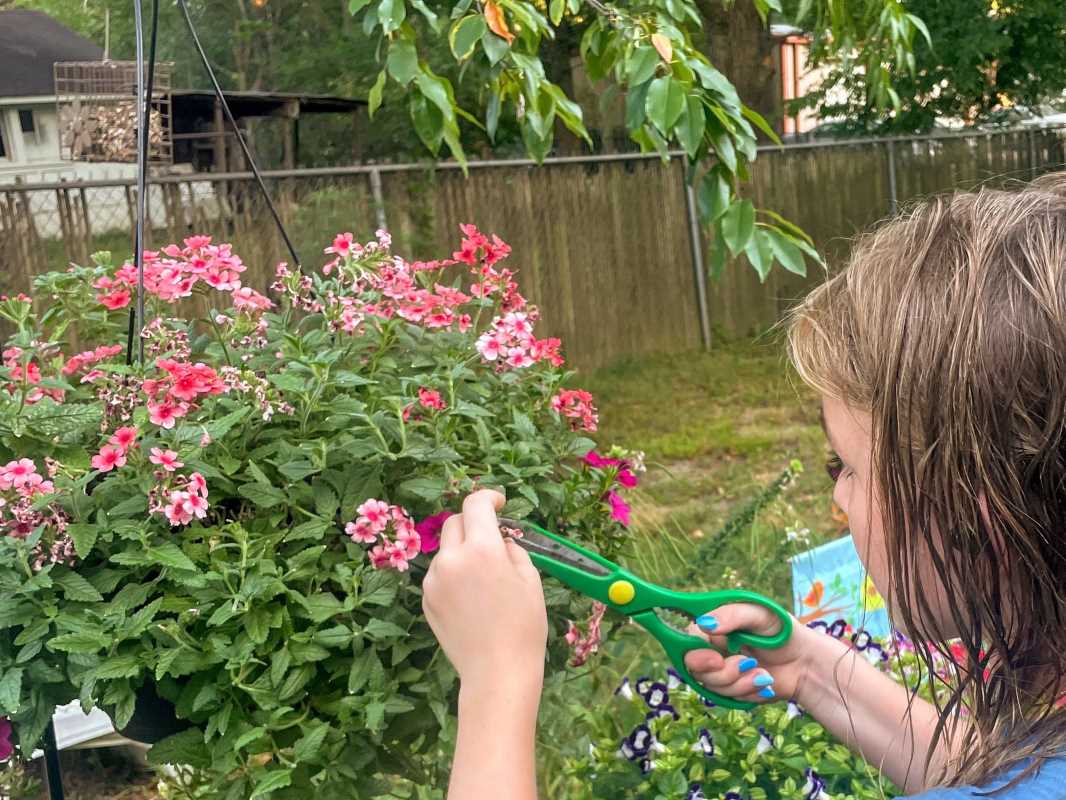In today's educational landscape, fostering a growth mindset in students is crucial for their overall development. A growth mindset encourages students to embrace challenges, persist in the face of setbacks, and see effort as a path to mastery. By cultivating this mindset, educators can help students reach their full potential and develop a lifelong love for learning. Here are some effective strategies to encourage growth and cultivate a growth mindset in students.
Understanding Growth Mindset
A growth mindset, a term coined by psychologist Carol Dweck, refers to the belief that abilities and intelligence can be developed through dedication and hard work. This contrasts with a fixed mindset, where individuals believe their intelligence and talents are static and unchangeable. Understanding this distinction is essential for both educators and students. Recognizing that growth is possible lays the foundation for resilience, creativity, and lifelong learning.
Emphasizing the Power of "Yet"
One powerful method to cultivate a growth mindset is to emphasize the power of the word "yet." Instead of saying, "I don't understand this math problem," students should be encouraged to say, "I don't understand this math problem yet." This simple linguistic shift reinforces the idea that mastery is attainable through effort and perseverance. By framing their challenges as temporary and surmountable, students begin to view difficulties as opportunities for growth. Teachers can model this language in the classroom, guiding students to adopt this mindset in their daily interactions with learning tasks.
Providing Constructive Feedback
Constructive feedback is critical in developing a growth mindset. Feedback should focus on effort, progress, and improvement rather than innate abilities. Instead of praising intelligence or talent, educators should acknowledge students for their hard work, effective strategies, and willingness to learn. For example, instead of saying, "You're so smart," a teacher might say, "I can see how much effort you put into this project; it really shows in your work." This approach reinforces the belief that improvement is possible through dedication and practice, motivating students to continue striving for success.
Promoting a Culture of Risk-Taking
Creating a safe and supportive learning environment where students feel comfortable taking risks is essential for cultivating a growth mindset. Encouraging students to step out of their comfort zones, try new things, and embrace challenges is crucial for their development.
When students understand that making mistakes is a natural part of the learning process, they become more resilient and open to growth. Activities that promote collaboration, such as group projects or peer reviews, can further support a culture where risk-taking is celebrated rather than feared. Teachers can establish norms that value experimentation and learning from failure, reinforcing that these experiences are stepping stones to mastery.
Teaching That the Brain is Like a Muscle
Helping students understand that the brain functions like a muscle that grows stronger with use can significantly shift their perspective on learning and intelligence. Encourage them to engage in challenging tasks that stretch their cognitive abilities and forge new neural connections.
By framing learning as a dynamic process that builds mental strength, students are more likely to approach challenges with a growth mindset. Educators can share stories of renowned figures who faced obstacles and ultimately succeeded through effort and determination, illustrating that intelligence can be developed. Engaging students in discussions about neuroplasticity—the brain's ability to reorganize itself by forming new neural connections—can empower them to see their capabilities in a new light.
Encouraging Self-Reflection and Goal-Setting
Empowering students to reflect on their progress, set goals, and track their growth is an effective way to cultivate a growth mindset. Encourage them to create a growth journal where they can document their learning journey, celebrate achievements, and identify areas for improvement.
This practice not only enhances their understanding of their abilities but also motivates them to pursue continuous improvement. By setting specific, measurable, achievable, relevant, and time-bound (SMART) goals, students can clearly see their progress and remain motivated to overcome challenges. Regular check-ins with students about their goals can further reinforce their commitment to personal growth.
Celebrating Effort and Persistence
Recognizing and celebrating students' efforts, perseverance, and resilience reinforces the importance of a growth mindset. Highlighting examples of students who have overcome challenges through hard work and dedication can inspire others to adopt a similar approach. By shining a spotlight on the value of persistence and grit, educators can motivate students to view obstacles as opportunities for growth. Classroom displays showcasing student achievements and growth journeys can serve as constant reminders of the benefits of a growth mindset. Schools can also organize events such as "Growth Mindset Days" to celebrate progress and effort, fostering a community-wide appreciation for growth and learning.
Creating a Supportive Learning Environment
A supportive learning environment is essential for fostering a growth mindset among students. Teachers should cultivate a classroom atmosphere that values collaboration, inclusivity, and encouragement. Establishing norms that promote respect and empathy among students can enhance their willingness to take risks and support each other in their learning journeys. Providing opportunities for peer feedback and collaboration can further strengthen relationships and create a sense of community. Regularly scheduled class meetings where students can share their experiences and challenges can also foster a sense of belonging and support.
Using Growth Mindset Resources
Utilizing various resources can effectively reinforce a growth mindset in students. There are numerous books, videos, and online materials that educators can incorporate into their curriculum. For example, books such as "Mindset: The New Psychology of Success" by Carol S. Dweck provide valuable insights and strategies for cultivating a growth mindset. Videos that showcase individuals overcoming obstacles or stories of perseverance can inspire students and illustrate the principles of a growth mindset in action. Additionally, educators can leverage online platforms that offer interactive activities and games focused on growth mindset principles, making the learning process more engaging and impactful.
Involving Parents and Guardians
Engaging parents and guardians in the growth mindset initiative can significantly enhance its impact. Providing resources and information about the growth mindset can empower families to reinforce these concepts at home. Educators can hold workshops or information sessions to explain the importance of a growth mindset and share strategies that parents can use to support their children’s development. Encouraging parents to use growth-oriented language and celebrate their children's efforts rather than solely their achievements can create a consistent message between home and school. This partnership can help students internalize the growth mindset philosophy and apply it across different contexts in their lives.
Integrating Technology to Support Growth Mindset
In the digital age, integrating technology into education can enhance the cultivation of a growth mindset. Educational apps and platforms can provide personalized learning experiences that adapt to each student’s needs and abilities. Many programs offer gamified elements that reward progress and effort, making the learning experience more engaging. Teachers can utilize online forums and discussion boards to facilitate peer collaboration and sharing of growth experiences, allowing students to learn from one another. Additionally, incorporating technology can help track students' progress over time, providing valuable data that can inform instruction and highlight individual growth.
Instilling a Lifelong Love of Learning
Ultimately, promoting a growth mindset is about instilling a lifelong love of learning in students. By encouraging curiosity, resilience, and a positive attitude towards challenges, educators can prepare students for future success both academically and personally. When students learn to embrace challenges and view failure as a learning opportunity, they are more likely to pursue new experiences and adventures throughout their lives. Creating a culture of inquiry, where questions are encouraged and exploration is valued, will inspire students to remain engaged and invested in their education long after they leave the classroom.
The Role of Educators in Promoting Growth Mindset
Educators play a pivotal role in promoting a growth mindset within their classrooms. They are not just facilitators of knowledge; they are also role models who demonstrate the values of perseverance and a passion for learning. By sharing their own experiences with challenges and failures, teachers can humanize the learning process and show students that setbacks are a natural part of growth.
It’s essential for educators to engage in continuous professional development themselves, learning new strategies to foster growth mindsets in their students. Collaborating with colleagues to share successes and challenges can create a supportive network that enhances overall teaching effectiveness. When educators embody a growth mindset, they inspire their students to adopt the same attitude, creating a positive feedback loop that reinforces the importance of resilience and lifelong learning in a rapidly evolving world. This synergy between teaching practices and student mindsets can lead to a more dynamic and enriching educational environment, ultimately benefiting all participants in the learning journey.
Incorporating these strategies into the educational experience can help students develop a growth mindset that empowers them to navigate challenges, embrace learning opportunities, and reach their full potential. By fostering a culture of growth and resilience, educators play a vital role in shaping students' attitudes toward learning, success, and personal development. Ultimately, instilling a growth mindset not only enhances academic performance but also prepares students for a lifetime of learning and adaptability in an ever-changing world. As we continue to navigate the complexities of education, fostering a growth mindset will be an invaluable tool in preparing our students for the future.
 (Image via
(Image via





